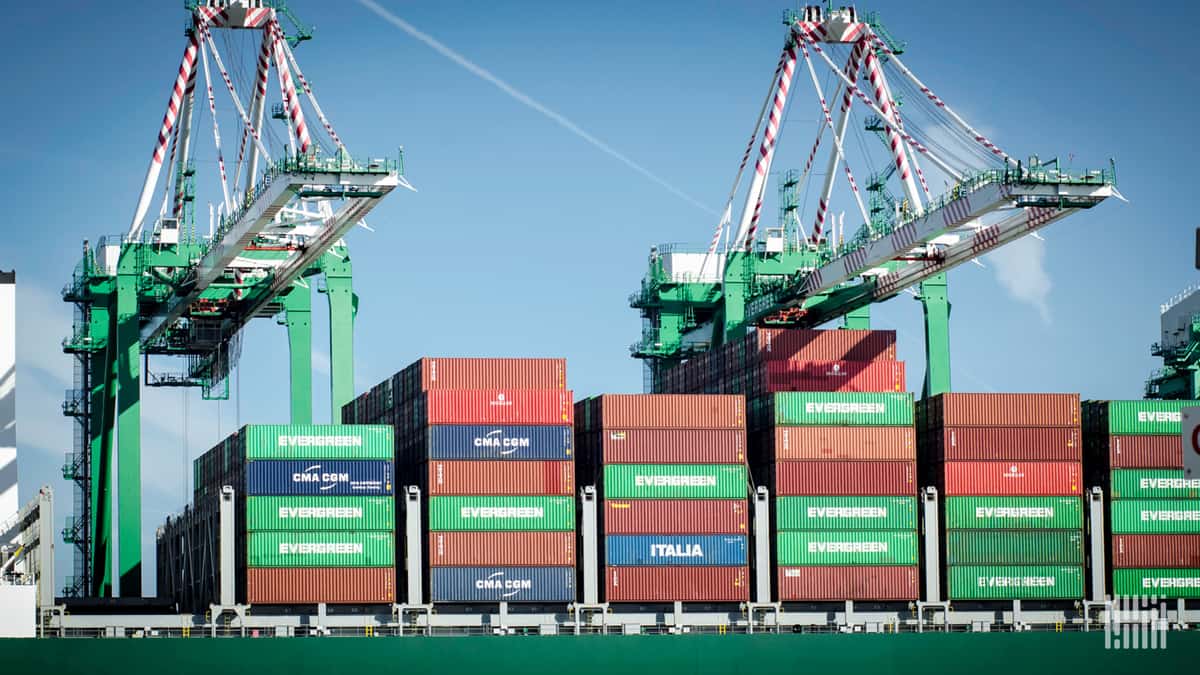
A global association representing the freight forwarding industry warned in a Wednesday position paper that the coronavirus pandemic’s severe impact on supply chains means the imbalance of container equipment to keep cargo moving is at a “tipping point.”
The International Federation of Freight Forwarders Associations (known by its French acronym FIATA) called container imbalances a “perennial issue in the supply chain” in most years, blaming the phenomenon on ocean carriers driving toward fewer, larger ships, which discombobulates container management at the marine terminals.
The ocean carriers’ use of blank sailings to accommodate Chinese New Year factory closures has also thrown global container traffic into temporary periods of imbalances around the world during normal years.
“The Chinese New Year 2020 period took place in the context of a general increase in blank sailings and an oversupply of capacity,” FIATA said. “The lack of container export shipments during the extended Chinese New Year period in China amid the COVID-19 outbreak further exacerbated this problem.”
FIATA said a key impact of the COVID-19-induced container imbalance has been “severe implications on destination backhaul (export) space and equipment, due to the significant shortage of sailings and containers shipped.”
The Switzerland-based association expects the problem to worsen in the months ahead, despite China’s factories returning to business. Many importers and factories in other parts of the world, such as North America and Europe, are still uncertain when their businesses will recover.
FIATA warned the container imbalance will continue to be felt immediately after the world’s markets begin to “reinvigorate the supply chain” once the pandemic subsides.
“As backhaul (export) demand increases, for example, the current high levels of blank sailings may mean there is not sufficient vessel space or container equipment for backhaul (export) containers, and as such imbalances in containers and available vessels will continue to be present,” FIATA said.
The World Customs Organization’s Private Sector Consultative Group on April 13 told customs authorities that current restrictions placed on containers of nonessential goods have already reduced access to containers for exporters with essential goods.
“If this continues, sooner or later, it will result in a halt in all container trade due to non-availability of empty containers,” industry representatives of the consultative group warned the Brussels-based global customs body. “This is a very real and major concern.”
In the interim, FIATA Director General Stephane Graber said forwarders should use their extensive logistics “know-how and experience” to help shippers and carriers facilitate container traffic through COVID-19-induced supply chain bottlenecks.
“FIATA is enhancing its service to all its members to overcome this unprecedented crisis together and support the reconstruction of trade, which will closely see the integration of the industry worldwide,” he said in a statement.
The association’s position paper, “Container imbalances and COVID-19: Freight forwarders’ role in finding solutions to the problems of today,” said the industry has the ability now to help shippers avoid paying costly demurrage and detention charges to ocean carriers and marine terminal operators.
Demurrage pertains to the time an import container sits in a container terminal, with carriers responsible for collecting penalties on behalf of the marine terminals. Detention relates to shippers holding containers for too long outside the marine terminals.
“Unloading a container for conventional warehousing may require extra handling but even then, the overall charges will be lower, and the commercial benefit will increase with the number of days storage is required,” FIATA said. “The message is clear: leaving goods in the container is the most expensive commercial option for storing goods.”
FIATA also said forwarders should use their logistics experience and information technology to keep refrigerated containers quickly moving through marine terminals, since most of these facilities have limited reefer plugs.
In addition, the association warned the COVID-19 pandemic will place some importers in the financial position of abandoning their cargoes at the piers. “In such instances, the international freight forwarder will by necessity manage the procedure and find practical solutions,” FIATA said.

